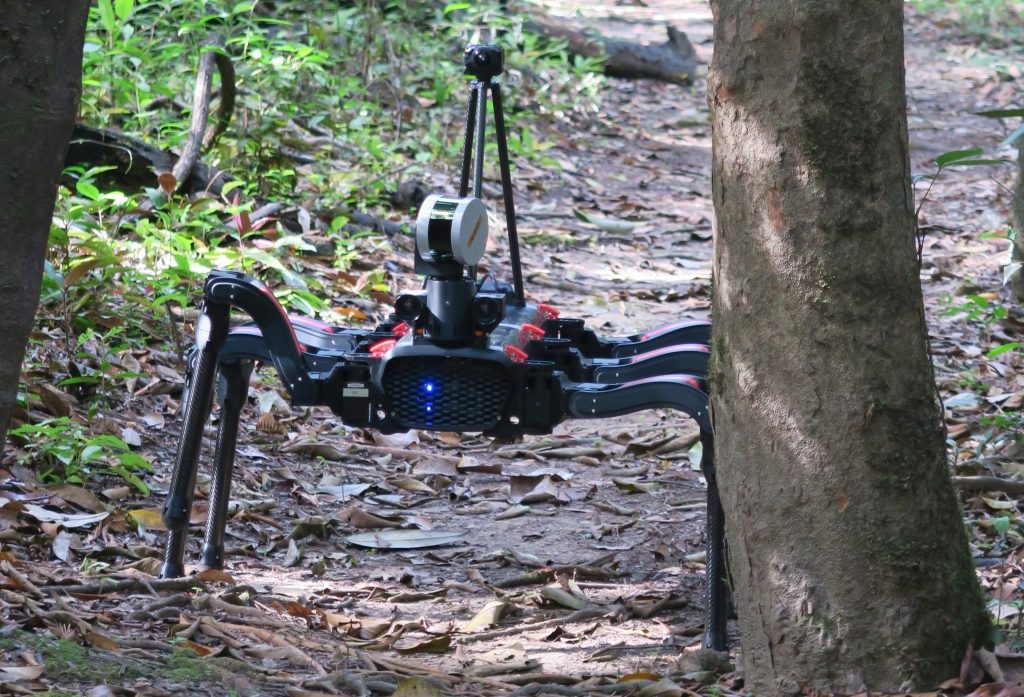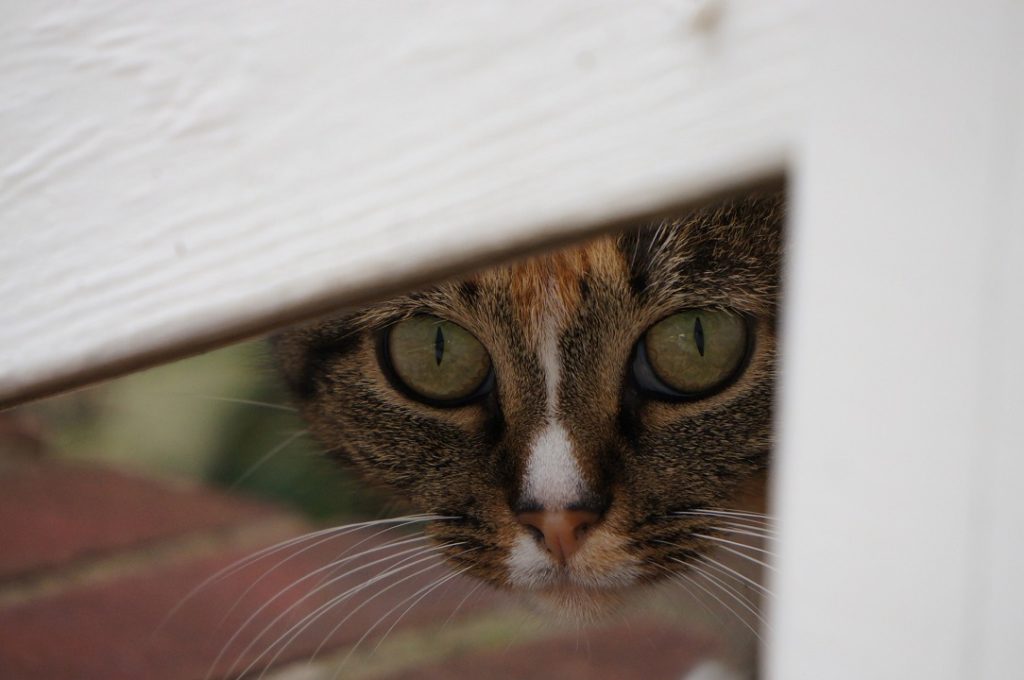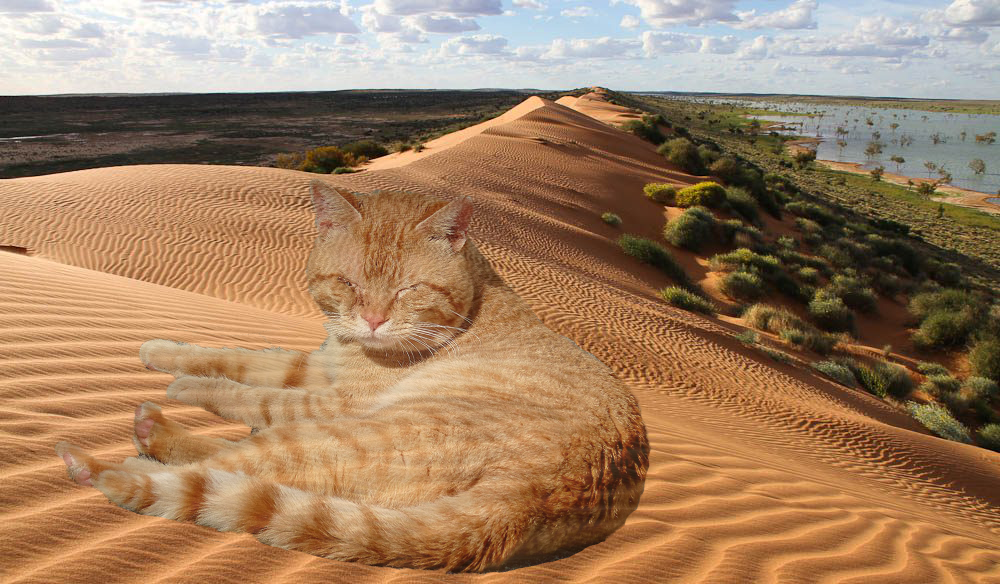Interronauts’ nine month hiatus is abatus and we’re back!
This episode, Sarah Frazer joins the roster to talk about our robot ecologists in the Amazon, the plan to augment feral cats into all-male clowders, the use of ugly veggies into delightful powders for your coffee, and researchers’ best attempt yet at weighing all life on Earth.
This time Jesse’s on production, but the sound will improve. Koala bear with us.
CSIRO news
Eyes and legs in the Amazon: protecting biodiversity using data
 “Our long-running project in the Amazon Rainforest, ‘Project Providence’, is entering its final phase. We’ve teamed up scientists from Brazil and Spain to deploy a remote monitoring system, and our experts have just stepped off the plane from a trip testing the deployment of the network. Providence will involve a continuous monitoring system that will act as the eyes and ears of the Amazonian forest by using a wireless network of sensors in the Amazon to monitor the activity of species including jaguars, monkeys, bats, birds, reptiles and even dolphins,” from our blog. Read more here.
“Our long-running project in the Amazon Rainforest, ‘Project Providence’, is entering its final phase. We’ve teamed up scientists from Brazil and Spain to deploy a remote monitoring system, and our experts have just stepped off the plane from a trip testing the deployment of the network. Providence will involve a continuous monitoring system that will act as the eyes and ears of the Amazonian forest by using a wireless network of sensors in the Amazon to monitor the activity of species including jaguars, monkeys, bats, birds, reptiles and even dolphins,” from our blog. Read more here.
Gene drive technology: A new hope in the fight against feral cats
 “It has got to a point now where over 1 million native animals are being killed by feral cats every day. It’s an imbalance our ecosystem cannot deal with… But there is hope on the horizon—gene drive technology. Essentially, gene drives are systems that can bias genetic inheritance via sexual reproduction and allow a particular genetic trait to be passed on from a parent organism to all offspring, and therefore the ability of that trait to disperse through a population is greatly enhanced,” from our blog. Read more here.
“It has got to a point now where over 1 million native animals are being killed by feral cats every day. It’s an imbalance our ecosystem cannot deal with… But there is hope on the horizon—gene drive technology. Essentially, gene drives are systems that can bias genetic inheritance via sexual reproduction and allow a particular genetic trait to be passed on from a parent organism to all offspring, and therefore the ability of that trait to disperse through a population is greatly enhanced,” from our blog. Read more here.
Broccoli: better latte than never
 “Just when you thought coffee trends couldn’t get any crazier, enter the broccoli latte. You’ve heard of turmeric lattes and even a coffee served in an avocado, but is the broccoli latte the next product to hit the tables of your local hipster café? We’re here to tell you, it’s possible… You might be asking why we would even suggest such an outrageous concept but it could actually help address two very real challenges our society is facing: food loss and poor diets,” from our blog. Read more here.
“Just when you thought coffee trends couldn’t get any crazier, enter the broccoli latte. You’ve heard of turmeric lattes and even a coffee served in an avocado, but is the broccoli latte the next product to hit the tables of your local hipster café? We’re here to tell you, it’s possible… You might be asking why we would even suggest such an outrageous concept but it could actually help address two very real challenges our society is facing: food loss and poor diets,” from our blog. Read more here.
Science news
The weight of all life
“The world’s 7.6 billion people represent just 0.01% of all living things, according to the study. Yet since the dawn of civilisation, humanity has caused the loss of 83% of all wild mammals and half of plants, while livestock kept by humans abounds,” from The Guardian. Read the research paper, here.
Those hopping mice don’t stand a chance.
Listen and subscribe
- iTunes — Subscribe to us on iTunes and leave us a rating and review, if you’re so inclined.
- Blog — Listen to ’em all online on our blog.
Contact us
You can get in touch with the Interronauts team via Facebook, Twitter @CSIROnews, Instagram @csirogram, or by emailing us at socialmedia@csiro.au. Thanks for listening!



Android?